- Register
- Log in to Tune-In
- Wishlist (0)
-
Shopping cart
(0)
You have no items in your shopping cart.
Beatles News

A Patek Philippe watch given to John Lennon by his wife Yoko Ono shortly before his assassination in 1980 has been discovered in Geneva, resurfacing after having disappeared for years.
The former Beatle’s timepiece is currently in possession of lawyers for an Italian watch collector who bought it from a now-defunct German auction house, according to official legal documents from a Geneva court. Ono had given Lennon the watch for his 40th birthday, and a former driver for the Japanese artist is suspected to have stolen the timepiece long ago.
Source: Andy Hoffman/bloomberg.com
details
Before Jimmy Buffett died last week at 76, he completed a new album called Equal Strain on All Parts, which will be released November 3rd. Its lead single is “Bubbles Up,” a song that Buffett’s collaborator Paul McCartney said is “probably the best” he’d ever sounded.
McCartney — who performs on an upcoming Equal Strain on All Parts single called “My Gummie Just Kicked In” — remembered the Margaritaville founder in a tribute post on Instagram earlier this week, reflecting on the first time he listened to the album and being taken aback by “Bubbles Up.” The tune’s title references how sailors can avoid drowning in a capsized boat by following the “bubbles up” to the water’s surface.
Source: Abby Jones Follow/consequence.net
details
Paul McCartney is no stranger to the Grammys, as he’s won plenty of trophies as a member of more than one band and on his own. The superstar has already collected 18 trophies and earned 81 nominations throughout his years as a music industry titan. He ranks as among the most successful artists in the history of the ceremony, and he certainly isn’t done being nominated.
This year, McCartney has a handful of tracks that are eligible for Grammy nominations, and it’s likely that they’ll all be submitted for consideration. One in particular stands out among his handful of other options, as it may lead the star to a category he’s never been nominated in before, should the tune earn the love and respect of voters.
In late March of this year, electronic producer and DJ Kygo released a new single titled “Say Say Say.” The tune credits both Paul McCartney and Michael Jackson, as it’s essentially a remix of the original single from the two powerhouses that was released decades prior. The track wasn’t marketed as a remix, though, but rather as a cover, of sorts, with the singers involved.
Source: Hugh McIntyre/forbes.com
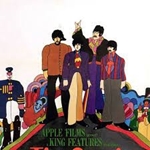
John Lennon's son, Sean Ono Lennon, first saw The Beatles' 'Yellow Submarine' on television years after its debut. The movie seems to have helped him reach a major epiphany.
John Lennon‘s son, Sean Ono Lennon, first saw The Beatles’ Yellow Submarine on television years after its debut. The movie seems to have helped him reach a major epiphany about his father. Subsequently, the film influenced a lot of pop culture, including a television special co-starring David Bowie.
The Beatles’ Yellow Submarine came out in 1968. Sean wasn’t born until 1975. The book All We Are Saying: The Last Major Interview with John Lennon and Yoko Ono features an interview from 1980. During the interview, John discussed Sean. “Beatles was never mentioned to him,” he said. “There was no reason to.
“We never played Beatles records — unlike the story that went around that I was sittin’ in the kitchen for five years playin’ Beatles records like some kind of Howard Hughes,” he continued. “Once he was over at a friend’s and Yellow Submarine was on television, and he came running over saying, ‘Daddy, were you a Beatle?'” Notably, John didn&r details

He’s regarded as one of the greatest rock ‘n’ roll artists of all time. As a solo performer, he would have earned this acclaim. But as one of the founding members of the Beatles and one of its principal songwriters, John Lennon remains one for the ages. But the Liverpool-born artist didn’t just save his talents for himself and his Fab Four compatriots. No, he spread the love. Here, we dive into a triumvirate of songs Lennon helped pen for other big-name artists.
1. “Mucho Mungo/Mt. Elga,” Harry Nilsson
Written by John Lennon, Harry Nilsson
Lennon produced American singer Harry Nilsson’s 1974 album, Pussy Cats. The work came during Lennon’s time split from wife Yoko Ono and it was inspired by Lennon and Nilsson’s at the time bad boy image, when they were known for being boisterous and often under the influence. In fact, the album cover for the record includes an inside joke, with the letters “D” and “S” beside a rug under a table, implying “drugs under the table.” But while Lennon produced the album, first in L.A. and then in New York, he only co-wrote one song, “Mucho Mungo/Mt. Elga,” on which Nils details

Rare images of The Beatles will be available to fans for the first time as a series of new of digital collectables.
The photos are from the vaults of Retna Pictures and London Features International; they include shots from the legendary rockers’ Help! and Hard Day’s Night promotional tours, as well as early performance photos, snaps from John Lennon and Yoko Ono’s “bed in,” and one from the Fab Four’s final photo shoot.
The digital images, created by Pop Culture, Inc., will be sold on the digital marketplace Quidd and will be available starting September 26 at 5 p.m. ET.
“We are excited about these magical collections, showcasing many photos that have never before been seen,” says Hayden Michael, CEO of POP Culture, Inc. “Our curator, Chris Vranian, has spent countless hours searching in old filing cabinets, most of which had not seen the light of day in half a century.”
Source: kslx.com
details
A trove of memorabilia once owned by England’s Fab Four is up for auction.
New Jersey-based company Gotta Have Rock and Roll began taking bids for the Rock & Roll Americana Auction on August 30, with an impressive 119 items relating to the Beatles on offer, alongside pieces with ties to Jimi Hendrix, Pink Floyd, and Michael Jackson.
The highlight is one photo-matched rarity that was signed by all four Beatles in 1964. Following their first American television appearance on The Ed Sullivan Show that year, the bandmates pinned their names on a large moveable wall that was used as a backdrop. Stagehand Jerry Gort asked them to sign it and claims that John Lennon, Paul McCartney, and George Harrison were the first to inscribe the piece. Ringo was last to sign, having to be picked up by the waist to leave his autograph. In addition to their names, “The Beatles were here” text and face drawings were added to the 16 by 48 inch slab. It is now expected to hammer down for between $750,000 and $1 million.
Source: Demetrius Simms/yahoo.com

Dolly Parton is readying the release of her Rockstar album, and the project features a special version of the Beatles' classic tune "Let It Be." Parton invited original Beatles members Paul McCartney and Ringo Starr to join her on the recording, along with Peter Frampton and Mick Fleetwood. The song is already impacting the charts, landing at No. 2 on Rock Digital Sales, No. 15 on Country Digital Song Sales and No. 22 on the all-genre Digital Song Sales. And Parton's inclusion of McCartney and Starr on the song marks an interesting milestone in Beatles band history.
Source: Grace Lenehan Vaughn/wideopencountry.com
details
George Harrison struggled to get his point of view heard while with the Beatles. His self-penned songs were often passed up in favor of ones written by John Lennon and Paul McCartney. Moreover, his opinion on which songs they should or should not record was often not voiced or not taken into account by the other members. Most of the time, Harrison seemed amicable enough, but there was one particular song that was too much for him to handle: “Maxwell’s Silver Hammer.”
The track falls under what Lennon called “granny music,” i.e. campy tunes that often featured a nonsensical, or at least zany, narrative. Truth be told, only McCartney was truly in favor of recording the track. The rest of his bandmates apparently groaned at the thought of recording the silly song. Although its most vehement hater was Harrison.
“Sometimes Paul would make us do these really fruity songs,” Harrison once said. “I mean, my God, ‘Maxwell’s Silver Hammer’ was so fruity. After a while we did a good job on it, but when Paul got an idea or an arrangement in his head…”
Source: Alex Hopper/americansongwriter.com
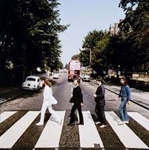
What’s the story behind the Beatles’ “Abbey Road” album? Here’s how the legendary set came together (pun intended)
“Abbey Road” is a bittersweet record for many Beatles fans. At the time, nobody really knew it was going to be the Beatles’ last album they recorded together. But, about a month after sessions wrapped up in August 1969, John Lennon decided to leave the wildly popular band. So, what’s the story behind the Beatles’ “Abbey Road” album?
What’s the Story Behind the Beatles’ “Abbey Road” Record?
In a day when singles are far more common than albums, and when albums do come, it’s often years and years apart, it’s difficult to comprehend that “Abbey Road” arrived just a few months after the Beatles’ previous release, “Yellow Submarine.” Specifically, “Yellow Submarine” arrived in January 1969, while “Abbey Road” dropped in September of that same year. This was a different era, though, when full-length records meant everything, and music dropped on vinyl.
Source: Anne Erickson/audioinkradio.com

The Beatles' "Penny Lane" is about a district, not a single lane. One member of the band lived there with his parents as a child.
The Beatles’ “Penny Lane” is about a district, not a single lane. Multiple members of The Beatles had connections to the real Penny Lane.
One member of the band lived there with his parents as a child.
The Beatles‘ “Penny Lane” made the titular district a household name across the world. Despite this, only one member of The Beatles lived in Penny Lane. Reportedly, he was not the member of the band who penned the song.
Source: Matthew Trzcinski/cheatsheet.com
details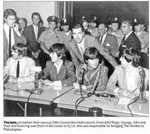
The Beatles wave to fans after disembarking a plane at Kennedy Airport in February 1964. Their Philadelphia show would take place that September. (United Press International/Library of Congress)
If you have a passing knowledge of pop music history, you know the Beatles landed in America in 1964.
Their February appearance on the Ed Sullivan show gets most of the attention, but their first American tour was actually in August and September of that year.
The ninth show of the tour was in Atlantic City, on Aug. 30 at Convention Hall. The tenth show was set for Philadelphia, on Sept. 2 at Philly’s old Convention Hall (also called the Civic Center).
But the days before the concert were tense in the city.
Source: Avi Wolfman-Arent/billypenn.com
details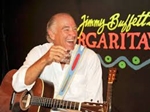
Paul McCartney paid tribute to Jimmy Buffett, who died on Friday at the age of 76. In a heartfelt remembrance, McCartney wrote of his late friend’s generosity, kindness, humor, and his songwriting.
McCartney recalled one particular holiday, where he forgot to pack his guitar, and Buffett came to the rescue.
“He said he would get me one of his, but I said, ‘I’m left-handed.’ So, Jimmy had his roadie restring one of his guitars which he loaned me for the duration of the holiday,” McCartney wrote. “He then followed this act of generosity by giving me my own beautiful left-handed guitar that had been made by one of his guitar-making pals. It’s a beautiful instrument, and every time I play it now it’ll remind me of what a great man Jimmy was.”
McCartney also spoke of his friend’s storytelling and his full embrace of life. “He had a most amazing lust for life and a beautiful sense of humour. When we swapped tales about the past his were so exotic and lush and involved sailing trips and surfing and so many exciting stories that it was hard for me to keep up with him,” he shared. “Right up to the last minute his eyes still twinkl details

The Beatles are, well, what can we really say that isn’t obvious? They are probably the biggest band ever. The Fab Four remain icons of music. Throughout their time together, the Beatles created a litany of indelible songs and massive hits. In fact, 20 different Beatles songs hit number one on the Billboard Hot 100 charts. And yet, that isn’t the end of the Beatles’ quality output. In fact, these are 30 great songs from the Fab Four that were never chart-toppers in the United States.
“All My Loving”
“Twist and Shout”
“And I Love Her”
Source: Chris Morgan
details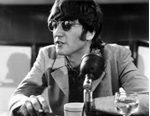
A Beatles engineer said nothing ever got past John Lennon. He noticed a minor change to a Beatles song because his singing was missing.
According to a Beatles audio engineer, John Lennon paid close attention when listening back to songs. Even though he derided some of The Beatles’ music after the band broke up, he was careful in the studio. While listening back to “Yellow Submarine,” Lennon realized that someone had made a mistake. His voice was missing from a part where it was meant to appear.
The Beatles spent a good deal of time messing around in the studio while recording “Yellow Submarine.” Still, Lennon tried to keep them focused. He put a great deal of thought into the song and made several alterations. Not all of these made it into the song’s final version, though.
“At a certain point, John decided that the third verse needed some spicing up, so he dashed into the studio and began answering each of Ringo’s sung lines in a silly voice that I further altered to make it sound like he was talking over a ship’s megaphone,” audio engineer Geoff Emerick wrote in his book Here, There and Everywhere: My Life Recording the Music of the Beatles. &l details
